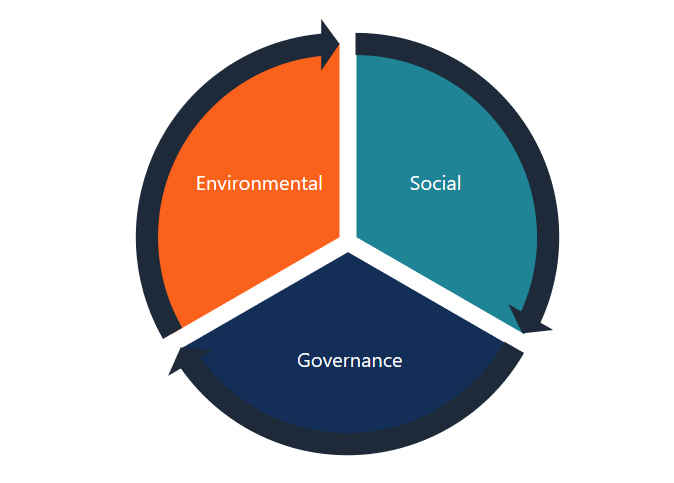Business leaders have been increasingly taking on corporate responsibility initiatives in the form of ESG (Environmental, Social, and Governance). Regulators, activists and investors now demand proactive commitment, besides shareholder returns. They do not want issues such as child exploitation, forced labour, low wages or high carbon footprint in the supply chain. Therefore, sustainability and eco-friendly business practices are the need of the hour. ESG research firms have been responding to these calls and working to support businesses and investments around the globe.
ESG is a crucial aspect that can help measure a company’s competitiveness, financial health and performance beyond immediate returns. Although ESG is not yet a part of standard financial reporting systems, institutions have already created standards and expect ESG compliance before investing. Below, we look at how ESG implementation can lead to sustainable business and investing around the globe.
- ESG practices offer a competitive edge to companies
Companies that adapt to changing socioeconomic and environmental conditions are in a better position to meet challenges and identify strategic opportunities. Proactive and integrated ESG policies give companies a competitive edge. Executives who make sincere efforts to serve the community, improve workforce conditions, promote team diversity and follow sustainable policies help strengthen their company’s brand. Moreover, research shows that millennials – who now form the largest segment of employees, executives, consumers and investors – reward responsible corporate companies with loyalty.
Market location significantly influences the relationship between financial performance and ESG. Sustainability and financial performance are more closely related to each other in emerging markets than in developed markets, resulting in more significant gains for ESG compliant companies.
- ESG compliance boosts stock liquidity
Institutional and individual investors invest considerable amounts into companies that actively govern and operate their businesses sustainably and ethically. Recent ESG research shows that sustainable investing has been growing at a rapid rate.
Investment consulting and research firms have developed rating systems to assess and rank companies according to their ESG criteria. Investment funds and ETFs use these ratings to acquire significant funds in companies implementing robust ESG policies. These long-term-oriented shareholders fuel demand for stocks, boosting liquidity. Several investment firms incorporate ESG ratings and evaluations in their risk assessments. These indicate capital flow towards businesses with solid ESG programmes and policies.
- Proactive ESG approach keeps activists away
For years, activists have used governance weaknesses as a tool for proxy contests and campaigns against companies. They often target management teams and boards that fail to take a stand on environmental and social issues. Companies that actively handle ESG issues set standards for their industry, protecting themselves from activists and their intervention.
- ESG investments are loyal
Investors focusing on ESG issues are often long-term thinkers who look more at the next decade than the next quarter or year. They know that it takes time for change to happen and show visible results. Investors who look for ESG compliance in their investments often work with companies to improve and strengthen it, focusing on long-term value creation instead of flipping stocks for short-term high returns.
- Strong ESG values attract top talent and retain them
Investors expect their companies and investments to share similar values. Social and environmental responsibility is one such value. Similarly, employees who feel valued contribute to the company’s goodwill and reinforce the brand to boost its overall productivity.
In this way, implementing ESG criteria in investment decisions improves financial performance and enhances employee retention rates. ESG research shows positive relationships between corporate performance and ESG.
- Positive ESG leads to outperformance
Positive ESG implementation within an organisation improves returns and reduces volatility, although results may vary from industry to industry. A company with a high ESG rating shows outperformance in its sector. Besides, ESG portfolios displayed lower volatility rates across the board than competitors.
Conclusion
ESG is a crucial dimension in measuring a company’s performance, competitive success and profitability. The impact of ESG extends beyond satisfying shareholders and creating value. A robust ESG policy helps build a powerful corporate brand and access capital when required. It enhances long-term, sustainable growth that benefits both investors and companies. Using ESG research can help investors make informed decisions and maximise returns over time.
Read More Blogs.





